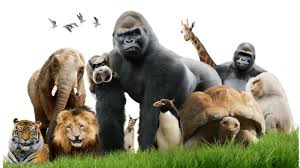|
Knowledge organization refers to the structuration of information according to relations between concepts and is crucially important for many cognitive processes, such as retrieval and reasoning. Indeed, as explained by the authors of a new study, our knowledge about the world is not an encyclopedia, with independent entries for information about separate topics, but rather an interconnected network organized according to relational links between concepts.
Studying children aged 4 to 9 (66 in total, from a Northeastern U.S. city), Unger and Fisher (2018) investigated whether this knowledge organization can be “rapidly molded by short-term real-world learning experiences” (quote from the original article.) More precisely, the pair set to measure the effects of a week-long zoo summer camp (compared with a control school-based summer camp) on the degree to which participants’ knowledge about animals was organized according to taxonomic relations. Importantly, neither group of children learned about taxonomic relations. Rather, the zoo camp consisted in daily lessons on themes such as “creatures of the night”, along with interactions with live animals, games, and craft sessions. Regardless, although there was no difference before the camps, children who participated in the zoo camp did show increases in taxonomic organization after just 4 days, while such was not the case for those who attended the school-based camp. To measure knowledge organization, the researchers resorted to two well-established tasks:
Reference: Unger and Fisher (2018), “Rapid, experience-related changes in the organization of children’s semantic knowledge”, Journal of Experimental Child Psychology, 179, pp. 1-22.
0 Comments
Your comment will be posted after it is approved.
Leave a Reply. |
|
Proudly powered by Weebly

